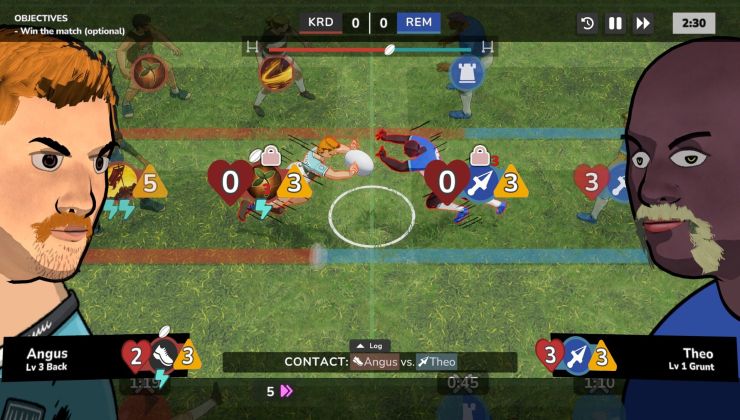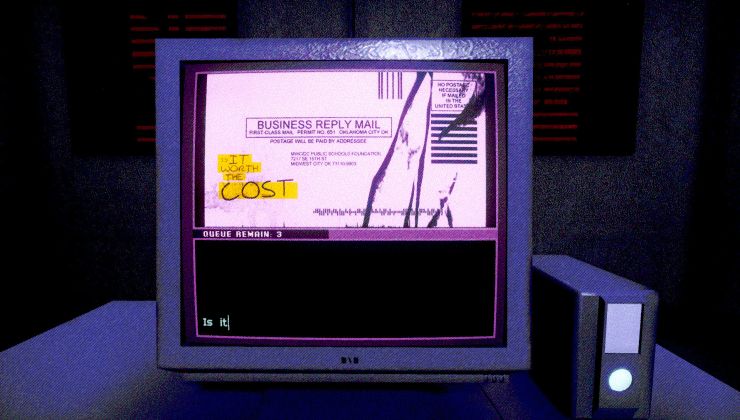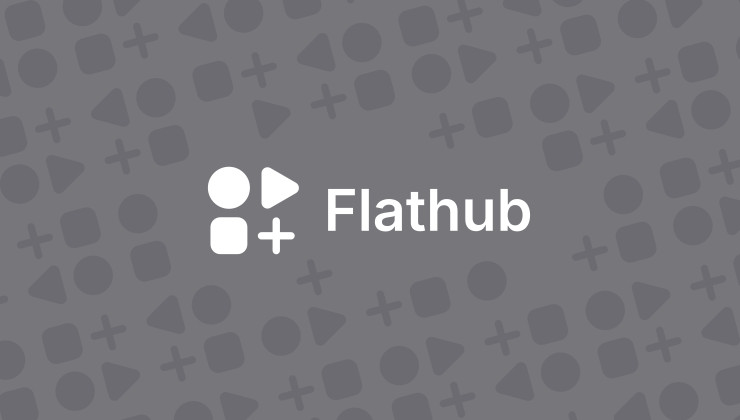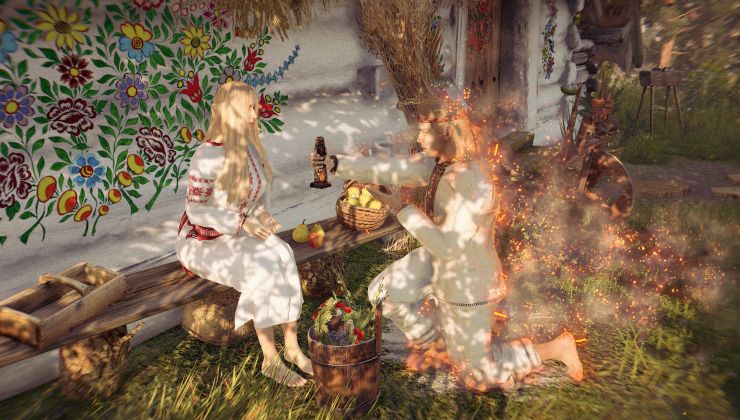It’s been a long time since I’ve done this, but here’s part 5 in the series of me talking to developers about how their games have been selling on Linux.
If you missed the previous articles: part 1, part 2, part 3, part 4.
Beamdog
For those who don’t recognise the name, Beamdog are the people behind revamps of classic RPG titles like Planescape: Torment: Enhanced Edition and Baldur's Gate: Enhanced Edition.
They gave some details about how Planescape: Torment: Enhanced Edition sold on Steam:
- 91.74% - Windows
- 6.22% - Mac
- 2.04% - Linux
Additionally, they also gave details about install numbers from their own Beamdog client:
- 91.13% - Windows
- 6.38% - Mac
- 2.49% - Linux
Here’s what Beamdog CTO, Scott Brooks had to say about Linux support:
QuoteWe really think the Infinity Engine games are something special and work hard to bring them to people that might not otherwise be able to play them. We've worked with professional and volunteer translators to help bring Baldur's Gate: Enhanced Edition to 14 languages, and we add things like Story Mode to help people who otherwise would have a hard time playing these great games. We've ported an engine that was originally built in the 16bit to 32bit transition to 64bit in order to let people continue enjoying these games. There are people on Linux that would love to play our games specifically on Linux, and we would love to let them.
Also, if you missed it I did an interview with Beamdog before, you can see that here.
MidBoss
MidBoss, the roguelike where you possess the bodies of your enemies released with Day-1 Linux support back in May. Here’s the figures their developer gave:
- 93.4 - Windows
- 4.7% - Mac
- 1.9% - Linux
Here’s what the developer of MidBoss had to say about supporting Linux now and in future:
QuoteI feel pretty good about supporting both platforms in MidBoss, particularly since Ethan Lee who made FNA did the ports and it wasn't too expensive. Without him they probably wouldn't have happened.
In the future I'll be using a new, completely custom framework that can create .NET executables as well as JavaScript/WebGL builds from a single C# codebase. We're planning to initially use the web builds with Electron to keep supporting Mac and Linux. This should perform just fine for smaller games such as Ultra Hat Dimension which is probably coming out on Steam in early 2018.
When we do wind up doing a bigger more demanding game again (MidBoss 2? Who knows!) I'll investigate getting the .NET versions working on Mac and Linux too. The .NET side uses OpenTK/OpenGL so it shouldn't be that difficult, hopefully, we just don't have the time/resources right now to go into it.
Milkstone Studios
To my surprise, Milkstone Studios were very open and sent over details about multiple titles!
White Noise 2
- 95.31% - Windows
- 4.06% - OSX
- 0.64% - Linux
Only Linux details given for these:
- Little Racers Street: 12.05%
- Pharaonic: 4.59%
- Ziggurat: 2.19%
- White Noise Online: 0.96%
It’s worth noting, that just before the release of Little Racers Street, I did an interview with Milkstone Studios about the title. That may have helped towards the rather high Linux percentage there.
Here’s what they said about continuing to support Linux:
Milkstone StudiosSeeing these numbers, look like Linux players are more used to single player experiences, so that might be the reason.
We support Linux on a pretty basic level (we're not Linux users ourselves, so we have limited experience with it). Linux support takes up lots of support time (I'd say around 20-25% of our support time is dedicated to addressing Linux issues), and it's hard to justify dedicating our time to this platform if sales for it are low. However, Unity allows for easy generation of Linux builds, and most of the work required for a proper port was done with Ziggurat, so for now we'll continue releasing games with Linux support, and trying to solve issues to the best of our knowledge.
While they weren’t able to give any specific details, I did speak to two of the bigger porters Feral Interactive and Aspyr Media.
Here’s what Feral Interactive had to say:
QuoteThe Linux market remains small in comparison to Mac, and tiny compared to Windows. Three years of bringing AAA games to Linux has taught us a lot about what works in sales terms, and what works less well. Although we had hoped that the Steam Machine would gain more traction, we have been pleasantly surprised by the Linux sales achieved on distros other than SteamOS, and continually encouraged by the passionate (and vocal!) audience of Linux gamers. However, we are disappointed by the promotion of piracy by some, which does disproportionate damage to the economics of bringing games to an already small platform.
Take a look at what Aspyr Media said:
QuoteOur Linux business continues to be an important part of our strategy going forward. We consider Linux a viable platform, and continue to make it a target goal of any deal we strike.
I did reach out to Virtual Programming, but they were extremely busy and didn't have time.
I would like to thank everyone who got back to me. Sadly some didn’t reply, but given how busy developers are actually making games, it’s all good!
Apple is a giant in mobile, but a dwarf on the desktop. If we're still discussing graphics APIs for demanding PC games I don't think the argument of "Apple is slowing down progress" is strong enough. How could they? They are only a fraction of the market and don't offer gaming specific hardware.
Didn't Feral above claim, that MacOS sales are higher than Linux sales? It means as I said, engine and game developers would prioritze it more, and the fact that they don't use Vulkan would mean Vulkan development will get lest time in result.
Last edited by Shmerl on 4 Aug 2017 at 3:30 pm UTC
Microsoft and DirectX on the other hand is a different case. They're the elephant in the room of PC gaming and a big player in the console space with Xbox. I guess DirectX > Vulkan conversion and feature parity is the deciding factor for Linux in the future, not a handful of Metal titles.
Sure, DX is even worse in this sense because of its size in gaming, but we were talking about Apple specifically.
MS by the way just recently made their own HLSL → SPIR-V compiler: https://github.com/Microsoft/DirectXShaderCompiler/blob/master/docs/SPIR-V.rst
So they seem to be somewhat on the right track at least with Vulkan.
Promoting piracy as an excuse for bypassing DRM is simply going to harm the already small market's image with publishers.
Usage of DRM itself is already causing harm. Some publishers are getting that, but most legacy ones are getting it very slowly.
Last edited by Shmerl on 3 Aug 2017 at 5:12 pm UTC
Didn't Feral above claimed, that MacOS sales are higher than Linux sales? It means as I said, engine and game developers would prioritze it more, and the fact that they don't use Vulkan would mean Vulkan development will get lest time in result.
I think this is a specific Aspyr/Feral issue, because they are mainly Mac porting houses. But in general if an engine like Unity supports both Vulkan and Metal -- where's the problem for the original developers?
In the end it usually comes down to costs of support. We've had this discussion regarding Dear Esther: Landmark Edition, which was re-built in Unity. It's relatively easy to run the game in a Linux Unity Player, but the developers don't release it on Linux because they are afraid of the support effort.
This has nothing to do with the graphics technology, it's simply about market share and after sales. If they believe 2 % is not worth the effort, then they won't release a Linux version.
Last edited by Jan on 3 Aug 2017 at 5:15 pm UTC
I think this a specific Aspyr/Feral issue, because they are mainly Mac porting houses. But in general if an engine like Unity supports both Vulkan and Metal -- where's the problem for the original developers?
I explained it [a few posts above](https://www.gamingonlinux.com/articles/linux-game-sales-statistics-from-multiple-developers-part-5.10064/comment_id=99134), you probably missed it.
AT NO POINT did AMD ever announce that they planned to donate or open it.
This is incorrect. AMD from the start communicated the intention to make it open eventually. Everyone knew it, and AMD indeed did it, by giving Mantle to become Vulkan's base. So both Apple and MS knew very well it's coming. That's why they rushed so much to produce their lock-in NIHs.
As early as 2013, it was known that Mantle will be opened: http://wccftech.com/amd-mantle-api-require-gcn-work-nvidia-graphic-cards/
Last edited by Shmerl on 3 Aug 2017 at 5:27 pm UTC
AT NO POINT did AMD ever announce that they planned to donate or open it.
This is incorrect. AMD from the start communicated the intention to make it open eventually. Everyone knew it, and AMD indeed did it, by giving Mantle to become Vulkan's base. So both Apple and MS knew very well it's coming. That's why they rushed so much to produce their lock-in NIHs.
This is speculation.
Even Apple cannot develop a brand new graphics API within six months and then suddenly release it. I'm pretty sure Metal's been in the making for a long time before Mantle was even thought of. And its main target was indeed mobile, macOS came later.
This is speculation. Even Apple cannot develop a brand new graphics API within six months
Neither can MS, and it's not a speculation. There were draft documents published from early DX12, which were practically verbatim copies of Mantle documentation, with just minor editions. Search for it, you can find them.
Both Apple and MS were content with doing nothing, until AMD finally woke them up. But instead of collaborating, they pushed their NIHs.
Last edited by Shmerl on 3 Aug 2017 at 5:38 pm UTC
Consider other cases (besides graphics). Apple didn't join Alliance for Open Media (while even MS did). Apple refused to support WebRTC in desktop Safari, they refused to support MSE, trying to sabotage adoption of DASH, and so on and so forth. The bottom line, they are the most notorious lock-in jerks around and they are causing a lot of damage to the industry because of that.
What about CUPS, WebKit, Swift, Darwin, OpenCL/Grand Central, Bonjour/Zeroconf, USB-C/Thunderbolt, FireWire, embracing of HTML5 instead of Flash, etc.?
I have the impression certain people like to cherry pick a lot just to find another reason to bash 'Evil Apple' instead of focusing on the real reasons why Linux adaption in gaming and on the desktop in general is lacking.
Apple is not preventing Linux from succeeding.
The lack of software people actually want and use on a daily basis (e.g. Adobe Creative Suite, Microsoft Office) and no flagship hardware/software company with an attractive Linux-specific product is more important than anything coming out of Cupertino.
Let's break that down;
CUPS: Open Source project bought by Apple. Still open sourced.
WebKit: Forked from KHTML, but is updated from various people. Still open sourced.
Swift: I'll give this one to Apple, cool.
Darwin: Open source kernel, but they don't keep it all that updated.
OpenCL: Already covered that it was kind of dropped. Not sure if they invented it or not.
Bonjour/Zeroconf: pretty sure that's a standard called mDNS, no?
USB-C/Thunderbolt: Intel created this.
FireWire: Same thing as above.
HTML5 vs Flash? everyone was behind this, even Adobe...
"eventually" is not something you can base a business decision on.
Apple and MS aren't new to competition paranoia. And they have tons of cash to throw at that. It's very clear they pushed their APIs only out of fear of opened up Mantle (which became Vulkan). Regardless, it doesn't matter now. They had all the time to start collaborating once it happened, even if they didn't know before, that Vulkan was going to emerge eventually. In the end they didn't, because they are too bent on lock-in.
Last edited by Shmerl on 3 Aug 2017 at 5:59 pm UTC
unfortunately i do not see this getting any better.i mean if we had a game that was linux only and it was a decent game where people would be dying to play it maybe just maybe it would get some interest.i don't want to be negative but i have been watching this the past 2 years and unless something drastic happens with windows 10 where people mass flood away from it we are just gonna be that small market.i so want linux to be huge but people are not giving it a chance or just too afraid to try it.
I agree but there in lies the problem, I came to linux because I tried it out and after time realised I was using it more than windows. Now for gaming I have taken a huge hit by staying on linux I have/had i guess over 300 + games on windows Steam 81 are playable on linux natively. The biggest problem I think still is the image linux has an image of being only for the super super hardcore geek.
I think Linux for the hardcore gamer is a tough sell. There is just not enough triple a support for them to ditch Windows and go 100 percent linux.
Last edited by Whitewolfe80 on 3 Aug 2017 at 6:03 pm UTC
This is the thing here. If Vulkan was a Linux Only API, then it'd probably very rarely get used. The fact that it was being worked on before Metal (it derives from AMD's Mantle), and Apple had stopped supplying newer OpenGL, they were specifically trying to be more anti-competitive to Linux/other BSDs.
No. I've heard this one SO many times. Mantle was only ever, an AMD project for AMD GPU's. AT NO POINT did AMD ever announce that they planned to donate or open it.
Meanwhile, other platform vendors sat and waited for Khronos to announce OpenGL Next... and waited.. and waited. Apple got fed up, and started developing Metal.
THEN Khronos finally announces Vulkan, and that it would be based on AMD's Mantle which AMD decided to donate. Too late. Apple's already committed to Metal. So they shipped Metal. And it works bloody well. Apple are not going to suddenly drop Metal for Vulkan "because".
If you want to blame someone for screwing this pooch, blame Khronos. It is also their indecisiveness and foot dragging that has kept OpenGL behind DirectX for years and years.
https://www.pcper.com/news/Graphics-Cards/AMD-Planning-Open-Source-GameWorks-Competitor-Mantle-Linux
you mean apart from in this interview where he gives the rough date of 2014 of mantle being an open source project
Let's break that down;
CUPS: Open Source project bought by Apple. Still open sourced.
WebKit: Forked from KHTML, but is updated from various people. Still open sourced.
Swift: I'll give this one to Apple, cool.
Darwin: Open source kernel, but they don't keep it all that updated.
OpenCL: Already covered that it was kind of dropped. Not sure if they invented it or not.
Bonjour/Zeroconf: pretty sure that's a standard called mDNS, no?
USB-C/Thunderbolt: Intel created this.
FireWire: Same thing as above.
HTML5 vs Flash? everyone was behind this, even Adobe...
mDNS was based on an open paper which was adopted by Apple and Microsoft. mDNS/Bonjour is Apple's name for zeroconf, Linux called it Avahi, not sure what MS did.
CUPS was around for a while, Apple didn't buy it, but they did eventually head hunt the main dude behind the company that did.
Don't know much about the rest, but it does seem to me that Apple get credit for stuff that's been around for years. I wouldn't mind, if they actually offered anything (literally, nearly anything, even just "credit", jesus!) back to the projects they use. But since they won't hardly even give anything back to their own shareholders, it hardly surprises me that they don't give anything back to the giants upon whose shoulders they stand.
https://www.pcper.com/news/Graphics-Cards/AMD-Planning-Open-Source-GameWorks-Competitor-Mantle-Linux
you mean apart from in this interview where he gives the rough date of 2014 of mantle being an open source project
It was known even before that, but yeah, that's a good example. AMD started focusing on open sourcing stuff more, once [Lisa Su](https://en.wikipedia.org/wiki/Lisa_Su) became CEO.
Last edited by Shmerl on 3 Aug 2017 at 6:12 pm UTC
All that has a negative impact. Consider for example engine developers like Epic and their UE. Because they need to support multiple redundant backends (DX, Metal, GNM, and then OpenGL/Vulkan), what do you think they are focused on more? Bigger ones of course. That's why games like Everspace suffer from bugs on Linux that aren't fixed in a long time. All that is a direct consequence of lock-in jerks pushing their APIs, instead of using open ones which would allow engine developers to produce higher quality result for each OS. What other practical demonstration of that impact do you need?
What does it have to do with Apple? Desktop-Gamingwise Apple plays almost no role in the big scheme of things - who buys a Mac to play games anyway? Also 'Redundant backends'? If it brings money it's not, from programmers' perspective, redundant I guess. Another point: there are examples of developers successfully supporting multiple backends (e.g.Serious Sam/The Talos Priniciple off the top of my head) without all that much trouble it seems.
So: is that all, as you write, 'consequence of lock-in jerks pushing their APIs'? Or maybe some teams are not competent enough? Work on other projects?
What does it have to do with Apple?
I just explained it above. What exactly you didn't understand? At least I see no point in repeating what I said, unless you have a specific misunderstanding of how pushing lock-in taxes developers.
To summarize. Any lock-in of some major participant in the industry creates a tax, or if you want a barrier of entry, which can deter some, or simply cause them spend more time on development or reduce quality of less prioritized options.
Last edited by Shmerl on 3 Aug 2017 at 6:38 pm UTC
What does it have to do with Apple?
I just explained it above. What exactly you didn't understand? At least I see no point in repeating what I said, unless you have a specific misunderstanding of how pushing lock-in taxes developers.
To summarize. Any lock-in of some major participant in the industry creates a tax, or if you want a barrier of entry, which can deter some, or simply cause them spend more time on development or reduce quality of less prioritized options.
You did not explain, you gave an example (Epic and their UE) to which i gave a counterexample (Croteam Talos Principle/SS). And there are dozens of other examples of games released on multiple platforms/backends which somehow work and are profitable.
Anyway my original question was why this thread turned into Apple bashing, and what does Apple have to do with the state of linux gaming. Does Apple force anyone to release their games (or software in general) on MacOS?
Do programmers know beforehand they will need to support another backend? If they do know and still release on MacOS is this Apple's fault or the programmers'?
You did not explain, you gave an example (Epic and their UE) to which i gave a counterexample (Croteam Talos Principle/SS). And there are dozens of other examples of games released on multiple platforms/backends which somehow work and are profitable.
No work comes for free. Work of supporting additional APIs costs money and effort. I.e. it's a tax. Sure, some can afford it, but you are very mistaken if you think it's free (either in time, money, people and so on). Some can afford this tax more than others, but it's still a tax. It creates a barrier of entry, and in general, has a chilling effect on competing platforms of those who create this tax with lock-in. That's the while idea behind it. If you still don't understand, read some general articles about the damage of vendor lock-in.
You did not explain, you gave an example (Epic and their UE) to which i gave a counterexample (Croteam Talos Principle/SS). And there are dozens of other examples of games released on multiple platforms/backends which somehow work and are profitable.
No work comes for free. Work of supporting additional APIs costs money and effort. I.e. it's a tax. Sure, some can afford it, but you are very mistaken if you think it's free (either in time, money, people and so on). Some can afford this tax more than others, but it's still a tax. It creates a barrier of entry, and in general, has a chilling effect on competing platforms of those who create this tax with lock-in. That's the while idea behind it. If you still don't understand, read some general articles about the damage of vendor lock-in.
I do understand that but again: Does Apple force anyone to release their games (or software in general) on MacOS? Do programmers know beforehand they will need to support another backend? If they do know and still release on MacOS is this Apple's fault or the programmers'?
I do understand that but again: Does Apple force anyone to release their games (or software in general) on MacOS? Do programmers know beforehand they will need to support another backend? If they do know and still release on MacOS is this Apple's fault or the programmers'?
Forcing is the wrong word here. Developers target bigger markets first naturally. So if they need to support N graphics APIs instead of 1, they'll spend N times more effort / money / time on doing it, instead of focusing on improving other things. And out of those N, they'll focus on bigger ones first. And it is lock-in jerks' fault, that instead of collaborating on the common standard, they created their lock-ins, to make the above effort much harder. HTML history can demonstrate you the benefits of the common open standard, and the damage lock-in can cause.
The bottom line, you got the point of lock-in being a tax. So I don't see what you are even arguing about.
Last edited by Shmerl on 3 Aug 2017 at 7:11 pm UTC







 How to set, change and reset your SteamOS / Steam Deck desktop sudo password
How to set, change and reset your SteamOS / Steam Deck desktop sudo password How to set up Decky Loader on Steam Deck / SteamOS for easy plugins
How to set up Decky Loader on Steam Deck / SteamOS for easy plugins
See more from me